|
|
| Sei in: Cinema e Medioevo ® Indice alfabetico dei film |
Asoka
2001, regia di Santosh Sivan
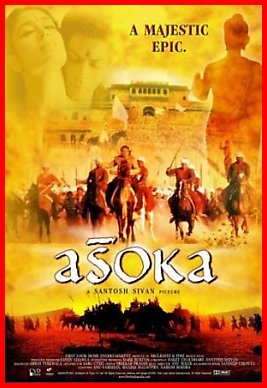
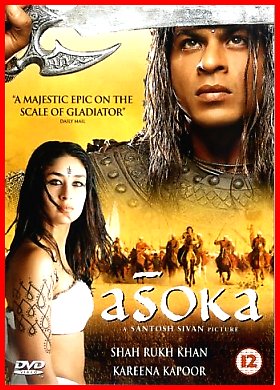
Scheda: Nazione: India - Produzione: Arclightz and Films, Dreamz Unlimited - Distribuzione: E Stars Films, First Look International, Metrodome Distribution, Mongrel Media - Sceneggiatura: Santosh Sivan, Saket Chaudhary - Dialoghi: Abbas Tyrewala - Fotografia: Santosh Sivan - Montaggio: Sreekar Prasad - Art Direction: Sabu Cyril - Costumi: Anu Vardhan, Manish Malhotra - Musiche: Anu Malik, Sandeep Chowta - Effetti speciali: Rajtaru Video Sonic - Formato: Color, linguaggio Hindi - Durata: 140' (176').
Cast: Shahrukh Khan, Kareena Kapoor, Ajit Kumar, Suraj Balaje, Danny Denzongpa, Rahul Dev, Hrishitaa Bhatt, Subhashini Ali, Gerson Da Cunha, Umesh Mehra, Johnny Lever, Raghuvir Yadav, Suresh Menon, Shilpa Mehta.
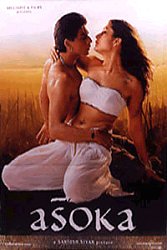
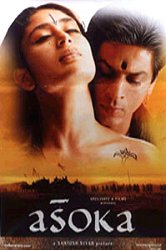
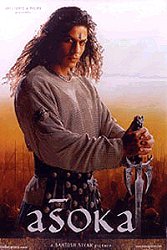
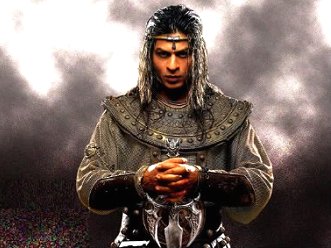
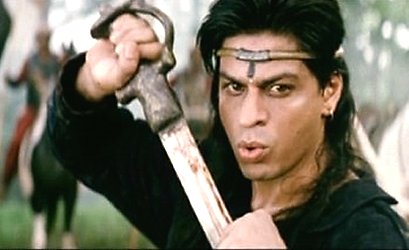
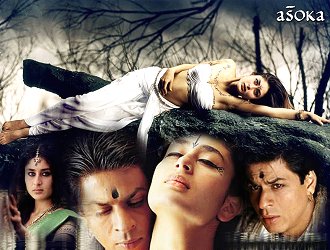
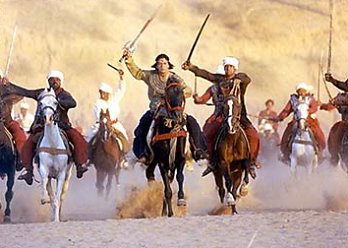
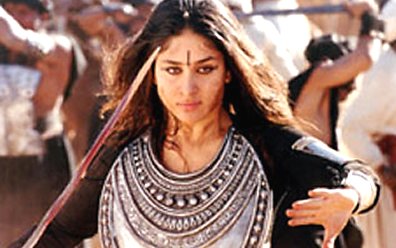
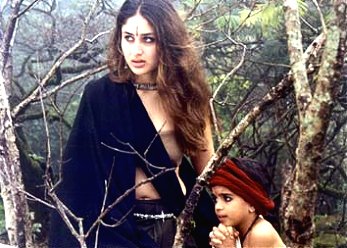
![]() Trama e commenti:
cinematografo.it
-
offscreen.it
-
it.movies.yahoo.com
-
recensionifilm.com -
it.wikipedia.org: «Asoka è un film di Bollywood diretto da Santosh Sivan
nel 2001, con Shah Rukh Khan e Kareena Kapoor. La coreografia è di Farah Khan. È
stato presentato alla 58º Mostra Internazionale d'Arte Cinematografica di
Venezia nello stesso anno, fuori concorso. Una breve parte del film è stata
girata in Sicilia, a Trapani.
Il film si apre con la narrazione a carattere storico delle vicende di un uomo
che da monarca è diventato un monaco.
L'imperatore Chandragupta Maurya decide di lasciare ogni bene materiale e di
ritirarsi presso un tempio induista. Prima che parta, un bambino corre da lui
per dirgli che suo nipote Asoka ha preso la sua spada. Allora l'anziano
imperatore spiega al principino Asoka che la spada è un demone che vede solo
sangue, sia esso di amici o nemici. Così decide di gettarla nel fiume e di
andarsene con gli altri monaci. Ma Asoka riesce a ritrovarla e, in preda
all'euforia, la lancia in aria, uccidendo involontariamente due uccellini su un
albero.
Ritorna a sentirsi la voce del narratore che chiede chi sarà il successore
dell'imperatore: Susima, amato e appoggiato da tutti, o il suo fratellastro
Asoka? Quest'ultimo ormai è cresciuto e si trova a combattere contro l'esercito
di Takshila. Quando i rinforzi che aveva chiesto non arrivano, Asoka sospetta
che il suo fratellastro Susima lo abbia fatto apposta per farlo uccidere in
battaglia, ma grazie alla sua astuzia, riesce a sconfiggere il nemico e a poter
tornare a casa. ...».
Trama e commenti:
cinematografo.it
-
offscreen.it
-
it.movies.yahoo.com
-
recensionifilm.com -
it.wikipedia.org: «Asoka è un film di Bollywood diretto da Santosh Sivan
nel 2001, con Shah Rukh Khan e Kareena Kapoor. La coreografia è di Farah Khan. È
stato presentato alla 58º Mostra Internazionale d'Arte Cinematografica di
Venezia nello stesso anno, fuori concorso. Una breve parte del film è stata
girata in Sicilia, a Trapani.
Il film si apre con la narrazione a carattere storico delle vicende di un uomo
che da monarca è diventato un monaco.
L'imperatore Chandragupta Maurya decide di lasciare ogni bene materiale e di
ritirarsi presso un tempio induista. Prima che parta, un bambino corre da lui
per dirgli che suo nipote Asoka ha preso la sua spada. Allora l'anziano
imperatore spiega al principino Asoka che la spada è un demone che vede solo
sangue, sia esso di amici o nemici. Così decide di gettarla nel fiume e di
andarsene con gli altri monaci. Ma Asoka riesce a ritrovarla e, in preda
all'euforia, la lancia in aria, uccidendo involontariamente due uccellini su un
albero.
Ritorna a sentirsi la voce del narratore che chiede chi sarà il successore
dell'imperatore: Susima, amato e appoggiato da tutti, o il suo fratellastro
Asoka? Quest'ultimo ormai è cresciuto e si trova a combattere contro l'esercito
di Takshila. Quando i rinforzi che aveva chiesto non arrivano, Asoka sospetta
che il suo fratellastro Susima lo abbia fatto apposta per farlo uccidere in
battaglia, ma grazie alla sua astuzia, riesce a sconfiggere il nemico e a poter
tornare a casa. ...».
![]() Plot Summary, Synopsis, Review: IMDb
-
rottentomatoes.com -
en.wikipedia.org -
ukcritic.com
-
bfi.org.uk -
movietalkies.com -
beyondhollywood.com
-
answers.com -
variety.com
-
film.the-fan.net
-
shinobi-myasianmovies.blogspot.com
-
bbc.co.uk -
allmovie.com:
«Cinematographer turned director Santosh Sivan follows up on his acclaimed
1999 opus Malli with this sweeping historical epic. Asoka, the emperor of the
Mauryan dynasty between 274 and 232 B.C., was famed for having unified much of
modern-day India and for raising Buddhism from obscurity to the ranks of a world
religion. Early in his life, as Emperor of the region of Magadha, he waged a
brutal campaign against the neighboring fiefdom of Challenge, leaving the land
bloody and ravaged. The war paid a toll on the young king; having realized the
full horror that he wrought, Asoka renounced violence and turned to the
spiritual sanctuary of Buddhism. This film was screened at the 2001 Toronto Film
Festival» (Jonathan Crow).
Plot Summary, Synopsis, Review: IMDb
-
rottentomatoes.com -
en.wikipedia.org -
ukcritic.com
-
bfi.org.uk -
movietalkies.com -
beyondhollywood.com
-
answers.com -
variety.com
-
film.the-fan.net
-
shinobi-myasianmovies.blogspot.com
-
bbc.co.uk -
allmovie.com:
«Cinematographer turned director Santosh Sivan follows up on his acclaimed
1999 opus Malli with this sweeping historical epic. Asoka, the emperor of the
Mauryan dynasty between 274 and 232 B.C., was famed for having unified much of
modern-day India and for raising Buddhism from obscurity to the ranks of a world
religion. Early in his life, as Emperor of the region of Magadha, he waged a
brutal campaign against the neighboring fiefdom of Challenge, leaving the land
bloody and ravaged. The war paid a toll on the young king; having realized the
full horror that he wrought, Asoka renounced violence and turned to the
spiritual sanctuary of Buddhism. This film was screened at the 2001 Toronto Film
Festival» (Jonathan Crow).
![]() Approfondimenti: Movie
Review
Approfondimenti: Movie
Review
Conosciuto anche con i titoli: Ashoka the Great; Asoka - Der Weg des Kriegers; Samrat Ashoka.